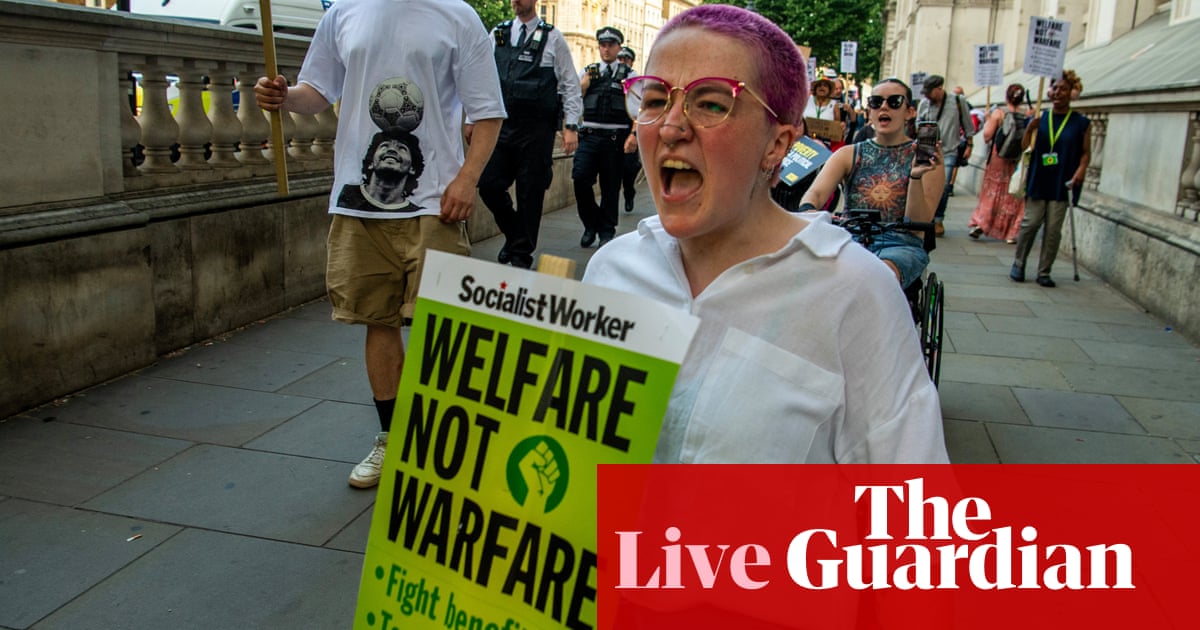A cabinet minister has declined to rule out tax rises after Labour’s welfare concessions to backbench rebels.
Pat McFaddentold BBC Breakfast he is “not going to speculate” on what could be in the budget, due in the autumn, but said that ministers “will keep to the tax promises” in their manifesto.
Labour faces renewed speculation over its tax plans after concessions to the party’s welfare rebels left a £4.8bn hole inRachel Reeves’s spending plans.
Asked whether economists were right that tax rises look likely, the chancellor of the duchy of Lancaster told the programme:
This is one moving part of the budgetary picture, it does have a financial consequence yesterday.
I’m not going to speculate on where the budget lands, because there are so many other different moving parts in it, and it wouldn’t make sense for me to do that.
Asked explicitly whether he could rule out tax rises, McFadden said:
I’m not going to speculate on the budget.
We will keep to the tax promises that we made in our manifesto when we fought the election last year. But it doesn’t make sense for me to speculate on something where, as I say, there are so many moving parts of which this is only one element.
Separately, McFadden told Times Radio that there will be “financial consequences” to the government’s concessions to welfare rebels.
He told Times Radio:
This is a decision that will have financial consequences. The process of the last couple of weeks does have financial consequences.
They will all be taken together with all the other moving parts that there are in the economy, in the fiscal picture at the budget, and that will be set out at the time. But I’m not denying that when you set out on a plan that has a cost attached to it, and then you have to change that or take it forward in slower time, that is a decision with financial consequences.
MPs voted through the government’s welfare bill by 335 votes to 260 – a majority of 75.
The concessions, including the last-minute shelving of plans to restrict eligibility forpersonal independence payments (Pip), were enough to head off the government’s firstCommonsdefeat on Tuesday evening. But they also removed a key plank ofKeir Starmer’s welfare reform agenda, delaying changes to Pip until after a review of the benefit not due to conclude until autumn 2026.
More on this in a moment, but first, here are some other developments:
Ministers should be looking at measures around wealth taxes or capital gains tax, a leading backbench rebel has suggested, after concessions left a hole in the chancellor’s spending plans. Rachael Maskell told BBC Radio 4’s Today programme that “we need to look at those with the broader shoulders”.
MPs will debate legislation today to ban Palestine Action.A draft order was laid before parliament on Monday to amend the Terrorism Act 2000 to include Palestine Action as a proscribed organisation, making membership and support for the direct action group illegal. If approved, it would become a criminal offence punishable by up to 14 years in prison. It is expected MPs and peers will debate the legislation over Wednesday and Thursday and, if approved, the ban could come into force by Friday.
Children should not be detained in custody unless arrested for a serious crime and strip-searched only under truly exceptional circumstances, two parliamentary reports have said.Harrowing testimoniesof children in England and Wales who were strip-searched and who accused police of racism and making damaging, disrespectful comments are included in the research for the all-party parliamentary group (APPG) on children in police custody.
Twelve of England’s regional mayors have signed up to an unprecedented plan to create a “national active travel network”, focusing initially on helping children to walk, cycle or scoot to school safely.The scheme, which involves all non-London regional mayors other than one from Reform UK, is intended to fit into wider efforts to devolve transport planning, working withActive Travel England(ATE) to implement schemes they think would help their area.
